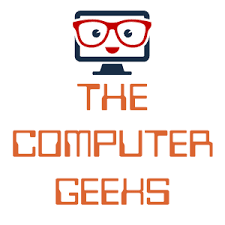In this article, we explore the energy efficiency of mini PCs compared to traditional desktops. As technology continues to develop and become more compact, many are wondering if these miniature computers are not only space-saving but also better for the environment. We will take a closer look at the power consumption, performance, and practicality of mini PCs, and uncover whether they truly live up to their reputation as energy-efficient alternatives to their larger counterparts. Join us as we uncover the truth behind mini PCs’ energy-saving potential.
Review contents
Power Consumption Comparison
Mini PC Power Consumption
When it comes to power consumption, mini PCs have gained popularity for their energy efficiency. These compact devices are designed to consume less power while delivering satisfactory performance. With advancements in technology, mini PCs use low-power components such as energy-efficient processors and solid-state drives (SSDs) to reduce power consumption. This means that even during heavy usage, mini PCs consume significantly less power compared to traditional desktops.
Traditional Desktop Power Consumption
On the other hand, traditional desktops are generally equipped with higher-power components and are designed to handle resource-intensive tasks. This translates to higher power consumption compared to mini PCs. Traditional desktops often require more energy to power their larger form factor, including larger power supplies, cooling systems, and multiple expansion slots. Although modern desktops have become more energy-efficient with the introduction of more power-efficient components, they still consume more power compared to mini PCs.
Energy Efficiency Factors
Processor Efficiency
The processor is a crucial component that significantly impacts power consumption. Mini PCs, being designed for power-efficient performance, often utilize low-power processors. These processors are designed to strike a balance between performance and power consumption, making them ideal for energy-efficient computing. Traditional desktops, on the other hand, may use higher-performance processors that tend to consume more power but offer better performance for resource-intensive tasks.
Graphics Performance
The graphics processing unit (GPU) is another component that affects power consumption. Mini PCs typically utilize integrated graphics solutions, which are built into the processor and consume less power compared to dedicated graphics cards commonly found in traditional desktops. While integrated graphics may not offer the same level of performance as dedicated graphics cards, they are sufficient for everyday tasks, multimedia consumption, and even some light gaming.
RAM Usage
RAM plays a crucial role in system performance and power consumption. Mini PCs often come with lower RAM capacity due to their compact size. This lower RAM capacity helps reduce power consumption, as less power is required to keep the RAM modules operational. Traditional desktops, on the other hand, typically offer higher RAM capacities, allowing for better multitasking capabilities but may consume more power due to the larger amount of RAM modules.
Storage Technology
The choice of storage technology also influences power consumption. Mini PCs often utilize solid-state drives (SSDs) as their primary storage solution. SSDs consume less power compared to traditional hard disk drives (HDDs) found in some desktops. HDDs require physical components to spin and read data, leading to higher power consumption. The use of SSDs in mini PCs contributes to their overall energy efficiency.
Power Supply Efficiency
The efficiency of the power supply unit (PSU) is another factor to consider. Mini PCs are often equipped with lower wattage PSUs, designed to supply power efficiently to the components within the system. These PSUs are typically rated with high efficiency percentages, ensuring that less energy is wasted as heat. Traditional desktops may come with power supplies with higher wattage to support the demands of high-performance components, but the overall efficiency may vary. Opting for a higher efficiency power supply can help reduce power consumption in both mini PCs and traditional desktops.
Size and Form Factor
Mini PC Size and Portability
One of the major advantages of mini PCs is their compact size and portability. Their small footprint allows them to be easily placed on a desk or tucked away in small spaces. Mini PCs are perfect for those who have limited space or prefer a clutter-free work area. Their lightweight nature makes them highly portable, enabling users to carry them around effortlessly. Whether for use at home, in the office, or for travel purposes, mini PCs offer convenience due to their small size and easy mobility.
Traditional Desktop Size and Space Requirements
In contrast, traditional desktops typically have larger form factors and occupy more space. These desktops require a dedicated area on a desk or table and may not be suitable for cramped or small spaces. The larger size of traditional desktops allows for more internal expansion options, such as additional storage drives, specialized graphics cards, or other peripherals. However, the larger size and space requirements may not be ideal for users with limited space or those looking for a streamlined and portable computing solution.
Productivity and Performance
Processor Performance
Productivity often depends on the processor’s performance, especially for tasks that require intensive processing power. Mini PCs offer sufficient processing power for general productivity tasks such as web browsing, word processing, spreadsheet management, and media consumption. However, for resource-intensive tasks like video editing, 3D modeling, or heavy multitasking, traditional desktops with more powerful processors may provide better performance due to their higher processing capabilities.
Graphics Capability
The graphical capabilities of a computer system are essential for various tasks, including graphic design, multimedia editing, and gaming. Mini PCs, with their integrated graphics solutions, are suitable for everyday multimedia consumption and casual gaming. They may struggle with graphic-intensive tasks that require a dedicated GPU. Traditional desktops, with their larger form factors and expansion options, allow for the installation of powerful dedicated graphics cards. This makes them more capable of handling demanding tasks such as high-end gaming, professional video editing, and rendering.
Multitasking Abilities
The ability to multitask seamlessly is crucial for many users, especially those who frequently work with multiple applications simultaneously. Both mini PCs and traditional desktops can handle multitasking to varying degrees. Mini PCs, with their energy-efficient components, may have limitations in terms of RAM capacity or processor power, affecting their multitasking abilities. Traditional desktops, with their larger form factors and the potential for higher RAM capacity and more powerful processors, usually offer better multitasking capabilities.
Thermal Considerations
Heat Dissipation in Mini PCs
Mini PCs are designed to be energy-efficient and compact, which can pose challenges in terms of heat dissipation. With their smaller form factor and limited space for cooling solutions, mini PCs may require efficient heat management to prevent overheating. Manufacturers often employ various techniques such as strategically placed ventilation, heat sinks, and low-power components to ensure proper thermal regulation. However, users should be mindful of placing mini PCs in well-ventilated areas to prevent any potential heat-related issues.
Thermal Management in Traditional Desktops
Traditional desktops, with their larger size and form factor, generally have more room for cooling solutions, making heat dissipation less of a concern. These desktops often come with fans, multiple case ventilation options, and larger heat sinks to dissipate heat effectively. Additionally, traditional desktops can accommodate larger and more powerful components, allowing for better thermal management through increased airflow. This results in reduced temperature buildup, ensuring optimal performance and longevity of the system.
Upgrade and Expansion Options
Expansion Slots and Ports in Mini PCs
Despite their compact size, mini PCs often come with a reasonable number of expansion slots and ports. These slots and ports allow users to connect peripherals such as external storage devices, monitors, keyboards, and mice. However, the limited physical space of mini PCs may restrict the number and type of expansion options available. Users should consider their specific needs and ensure that the mini PC they choose provides sufficient connectivity options for their intended use.
Upgrade Potential of Traditional Desktops
Traditional desktops excel in terms of upgrade potential due to their larger form factors and expandability. These desktops typically offer more expansion slots, allowing users to add additional storage, graphics cards, sound cards, and other peripherals as needed. Furthermore, traditional desktops often have more accessible internal components, making upgrades and replacements easier. This flexibility gives users the freedom to customize and adapt their system over time without having to purchase an entirely new system.
Gaming and Entertainment
GPU Performance in Mini PCs
When it comes to gaming and entertainment, the graphical processing power of a system plays a significant role. While mini PCs often come with integrated graphics solutions, they may not have the capability to handle high-end gaming or graphics-intensive tasks. Casual gamers or those who prioritize energy efficiency and portability may find mini PCs suitable for light gaming and media consumption. However, users looking for more immersive gaming experiences or higher graphical fidelity may opt for traditional desktops with dedicated graphics cards capable of delivering better performance.
Desktop Gaming and Media Capabilities
Traditional desktops, with their larger size and expandability, have an advantage in terms of gaming and media capabilities. These desktops can accommodate powerful dedicated graphics cards, allowing for a more immersive gaming experience and enhanced graphics quality. With sufficient processing power, RAM capacity, and room for additional storage, traditional desktops can handle demanding games, VR experiences, and resource-intensive media editing with ease.
Cost Comparison
Initial Purchase Cost
Mini PCs typically offer a cost-effective solution compared to traditional desktops. Due to their compact size and energy-efficient components, mini PCs are often more affordable. They can be an excellent choice for users on a budget or those with basic computing needs. However, it is essential to consider the specific requirements and intended use before making a purchase decision, as traditional desktops may deliver better performance for more demanding tasks at a higher upfront cost.
Long-term Cost of Ownership
While mini PCs may have a lower initial purchase cost, the long-term cost of ownership should also be considered. Mini PCs often consume less power, resulting in potential energy savings over time. Additionally, their compact size and lower power requirements may translate to reduced cooling needs, potentially saving on electricity bills. However, traditional desktops offer greater upgrade potential, allowing users to extend the lifespan of their systems without needing to replace the entire unit. The long-term cost of ownership will ultimately depend on factors such as usage patterns, desired performance, and the need for future upgrades.
Environmental Impact
Manufacturing Processes
The environmental impact of computing devices should be taken into account when considering their energy efficiency. Mini PCs, with their smaller size and lower power consumption, require fewer raw materials during manufacturing. The smaller footprint also means reduced packaging materials and transportation energy usage. Traditional desktops, with their larger form factors and potentially higher power consumption, may have a larger environmental footprint during manufacturing due to greater material requirements.
E-waste Generation and Recycling Options
E-waste generation and disposal are critical environmental concerns. Mini PCs, with their compact size, generate less e-waste compared to traditional desktops during their lifecycle. Additionally, the energy-efficient components used in mini PCs often have a longer lifespan, reducing the need for frequent replacements. However, it is essential to recycle all electronic devices properly, regardless of size or type. Many countries have e-waste recycling programs in place to minimize the environmental impact of electronic waste, and users should make use of these options to ensure responsible disposal and recycling of their computing devices.
Conclusion
When considering whether mini PCs are more energy-efficient than traditional desktops, it is important to evaluate various factors. Mini PCs offer lower power consumption, compact size, and portability, making them suitable for users with limited space or those who prioritize energy efficiency and mobility. On the other hand, traditional desktops provide better upgrade options, higher performance, and more expansion possibilities, making them ideal for users with demanding computing requirements or those seeking a more customizable solution. Ultimately, the choice between a mini PC and a traditional desktop depends on individual needs, preferences, and the specific tasks the computer will be used for. By considering factors such as power consumption, performance, form factor, and environmental impact, users can make an informed decision that aligns with their unique computing needs.
































